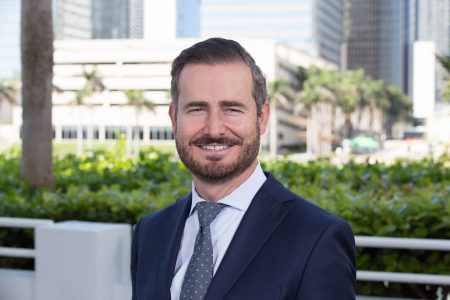SPVs vs. Investment Funds: Which One to Choose?
| By Romina López | 0 Comentarios

Innovation and adaptation are crucial in finance and business to tackle evolving challenges and seize opportunities. One of the most interesting and effective concepts in this area is the Special Purpose Vehicle (SPV), also known as a special purpose entity. These legal entities, operating under a specific focus, have proven to be an agile asset management tool in various contexts.
Understanding the SPV concept
Special Purpose Vehicles (SPVs) are entities with specific purposes. An SPV is a legal entity with its own assets and liabilities, separate from its parent company. Parent companies legally separate the special purpose entity mainly to isolate financial risk and ensure it can fulfill its obligations even if the parent company goes bankrupt.
An SPV is also a key channel for securitizing asset-backed financial products. In addition to attracting equity and debt investors through securitization, as a separate legal entity, an SPV is also used to raise capital, transfer specific assets that are generally hard to transfer and mitigate concentrated risk.
How do Special Purpose Vehicles work?
The SPV itself acts as an affiliate of a parent corporation. The SPV becomes an indirect source of financing for the original corporation by attracting independent equity investors to help purchase debt obligations. This is most useful for high-credit-risk elements, such as high-risk mortgages.
Not all SPVs are structured the same way. In the United States, SPVs are often limited liability companies (LLCs). Once the LLC purchases the high-risk assets from its parent company, it typically pools the assets into tranches and sells them to meet the specific credit risk preferences of different types of investors.
Companies generally use SPVs for the following purposes:
Asset Securitization: In securitization, an SPV is created to acquire financial assets, such as mortgages, loans, or receivables, from a company or originator. These assets are bundled and issued as asset-backed securities (such as mortgage-backed bonds). The SPV separates the assets from the originating company, which may reduce risk for investors.
Project Financing: SPVs are used in infrastructure or development projects involving multiple parties. The SPV can acquire and operate the project, raising funds from investors and issuing securities to finance it. This limits the risk and liability of the involved parties.
Mergers and Acquisitions: In acquisition or merger transactions, an SPV can be used to isolate the assets or liabilities of the target company, which can benefit risk management and the transaction’s financial structure.
Risk Management: Companies can use SPVs to separate certain risky assets or activities from their balance sheet, helping to mitigate the impact of potential financial issues on the entire organization.
Real Estate and Property Development: SPVs can be used in real estate projects to acquire and develop properties. This can facilitate investment from multiple partners or investors and provide a separate legal structure for the project.
Asset Financing: Companies can use SPVs to finance the purchase of specific assets, such as equipment, planes, ships, or other high-value goods.
Tax Optimization: In some cases, SPVs can be used to leverage specific tax benefits or favorable tax structures in certain jurisdictions.
Special Purpose Vehicles are used to create specific financial structures that help separate risks, facilitate investment, manage assets, and meet specific business objectives. These legal entities offer flexibility and opportunities for investors and companies in various financial and business situations.
At FlexFunds, we take care of all the necessary steps to make customized and innovative SPVs accessible to fund managers. Thanks to these investment vehicles, asset managers and financial advisors can expand the range of products they offer to their clients.
SPV vs. Investment Funds: different approaches for different needs
A Special Purpose Vehicle (SPV) and an investment fund are financial concepts used to structure and manage investments efficiently, but they are employed in different contexts and for different purposes.
Special Purpose Vehicle (SPV):
A special purpose vehicle is a standalone company created to disaggregate and isolate risks in underlying assets and allocate them to investors. These vehicles, also called special purpose entities (SPEs), have their own obligations, assets, and liabilities outside the parent company.
Investment Funds:
Investment funds are collective investment vehicles where investors contribute their money to a common fund managed by financial professionals called fund managers. These funds pool money from various investors and are used to invest in various assets, such as stocks, bonds, real estate, or other financial instruments.
So, a Special Purpose Vehicle (SPV) is used to structure specific transactions and separate risks, while an investment fund is a collective vehicle that allows investors to pool resources to invest in a broader range of assets. Both concepts play an important role in the financial field, but their focus and purpose are different.
There’s no definitive answer as to which instrument is better, as their utility depends on each individual or entity’s specific investment goals and circumstances. Each has its own advantages and disadvantages, and the choice will depend on factors such as the investment purpose, the level of risk the client is willing to take, the investment duration, and personal preferences.
Some Advantages and Disadvantages of SPVs:
Advantages:
Special tax benefits: Some SPV assets are exempt from direct taxation if established in specific geographic locations.
Spread the risk among many investors: Assets held in an SPV are financed with debt and equity investments, spreading the risk of the assets among many investors, and limiting the risk for each investor.
Cost-efficient: It often requires a meager cost depending on where you created the SPV. In addition, little or no government authorization is needed to establish the entity.
Corporations can isolate risks from the parent company: Corporations benefit from isolating certain risks from the parent company. For example, if assets were to experience a substantial loss in value, it would not directly affect the parent company.
Disadvantages:
They can become complex: Some SPVs may have many layers of securitized assets. This complexity can make it challenging to monitor the level of risk involved.
Regulatory differences: Regulatory rules that apply to the parent do not necessarily apply to the assets held in the SPV, which may represent an indirect risk for the company and investors.
Does not entirely avoid reputational risk for the parent company: In cases where the performance of assets within the SPV is worse than expected.
Market-making ability: If the assets in the SPV do not perform well, it will be difficult for investors and the parent company to sell the assets back into the open market.
Some Advantages and Disadvantages of Investment Funds:
Advantages:
Investment funds offer instant diversification by allowing investors to access a diversified asset portfolio managed by professionals.
They offer greater liquidity than some SPVs, as investors can buy or sell fund shares anytime.
Investment funds are more suitable for investors seeking a broader exposure to financial markets without actively managing their investments.
Disadvantages:
Investment funds can have management fees and associated expenses, which can reduce returns for investors.
Investment funds are designed for a wider group of investors and may not offer the same specific structure required in some complex transactions.
Ultimately, choosing between an SPV and an investment fund will depend on your needs and goals. With over a decade of experience, FlexFunds makes setting up an SPV straightforward for its clients, facilitating distribution and capital raising for their investment strategy, achieving this at half the cost and time of any other market alternative.









